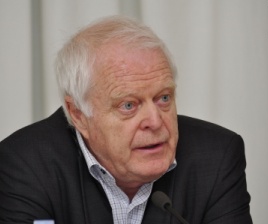
TBILISI, DFWatch–The government of Georgia will two months from now approve a strategy of protecting human rights.
The document will be complex aiming to establish a high standard of democracy.
This is one of the results of a human rights conference in Tbilisi attended by the speaker of parliament and the prime minister, as well as diplomats and representatives of the non-governmental sector.
Thomas Hammarberg, EU’s special representative for constitutional, legal and human right issues, presented a report about the situation in the country when it comes to human rights.
He thinks there is a need to improve and avoid repeating the mistakes of the past.
Hammarberg said self-criticism is important for a government, especially regarding human rights. He said he has read a number of reports to study the situation in Georgia.
He said there were systemic problems in the courts and that equal standards were not applied. He furthermore pointed to the excessive powers that were vested in the Prosecutor’s Office.
The EU also mentioned widespread illegal surveillance and the lack of separation between the ruling party leadership and the state leadership.
Prime Minister Irakli Gharibashvili, who was also present at the conference, said that the new government inherited a quite dire situation in the human rights field.
“Previous rulers had the state’s modernization as a highest priority and sacrificed much for this goal, especially rights of their fellow countrymen,” Gharibashvili said.
He went on saying that during after the landmark October elections in 2012, the new government managed to correct many of the shortcomings of its predecessor, notably the destruction of part of an archive of surveillance videotapes.
“The most important thing is that people now are not afraid,” Gharibashvili said.
The destruction of thousands of illegal surveillance videos depicting personal, and even sexual activities, also involving politicians, civil activists and journalists, caused a heated debate in Georgian society for months. Finally the Ministry of Internal Affairs agreed to destroy several thousand of the files in the archive, but the bulk of the videos still exists.
Lasha Tughushi, Editor-in-Chief of the newspaper Rezonansi, who has actively pushed for the videos to be destroyed, said during the conference that the threat of illegal surveillance and eavesdropping still exists and there has not been enacted systemic changes in this regard.
“I cannot say for sure whether such malign practice goes on now but, anyway, such infrastructure still exists and no-one know when the spree (of illegal surveillance, ed.) will start again,” Tughushi said.

